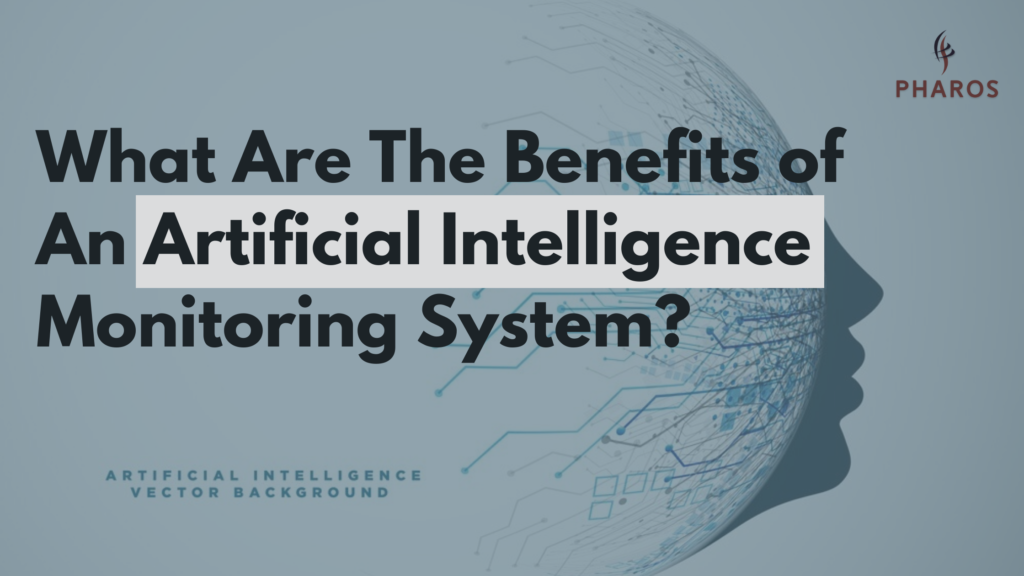
Artificial intelligence Monitoring System has been around for quite some time now. From quick search engine suggestions to robot greeters at shopping malls, AI is increasingly becoming a part of our everyday lives. In our previous blogs, we have also discussed the readiness of AI-driven customer relationship management (CRM) and customer data platform (CDP) software, one of the most important benefits of AI. The scope for development and innovation is enormous and is going to change the world in diverse ways.
Below are the 9 most remarkable benefits of Artificial Intelligence Monitoring Systems that are helping to reshape the world!
1- Automated systems
One of the most widely touted advantages of AI technology is automation, which has had enormous effects on the communications, transportation, consumer goods, and service industries. Automation not only allows for higher production rates and productivity in various industries, but it also allows for more efficient raw material utilization, better product quality, shorter lead times, and increased safety. Automation can also help to free up resources that can be put to better use.
2- Making Informed Decisions
Artificial Intelligence has long been used to help businesses make better decisions. To make the best judgments for the firm, AI technology can coordinate data distribution, assess trends, build data consistency, provide forecasts, and quantify uncertainties. AI will remain neutral on the subject at hand as long as it is not trained to emulate human emotions, and it will assist in making the best decision to enhance corporate efficiency.
3- Improved Customer Service
AI-powered solutions can assist organizations in promptly responding to consumer inquiries and grievances and resolving issues. Chatbots that combine conversational AI and Natural Language Processing technology may provide highly tailored messages to clients, assisting in the discovery of the optimal solution for their needs. AI solutions can also assist customer support representatives to feel less stressed, resulting in increased productivity.
4- Medical Innovations
Artificial Intelligence (AI) technologies are becoming increasingly popular in the healthcare industry.
For example, remote patient monitoring technology enables healthcare providers to promptly
perform clinical diagnostics and prescribe treatments without having the patient attend the
hospital in person. AI can also help track the evolution of contagious diseases and even anticipate their impacts and results in the future.
5- Data analysis and research
Artificial intelligence (AI) and machine learning (ML) can be used to examine data considerably more quickly. It can aid in the development of predictive models and algorithms for data processing and understanding the possible outcomes of various trends and events. Furthermore, AI’s sophisticated computing skills can expedite the processing and analysis of data for research and development that would otherwise take too long for humans to analyze and comprehend.
6- Solving Difficult Problems
AI technology has progressed from basic Machine Learning to advanced Deep Learning models, allowing it to address complicated problems. AI is assisting organizations across industries in finding the right solutions to manage their difficulties more effectively, from fraud detection and tailored consumer interactions to weather forecasting and medical diagnostics. Increased productivity and cost savings result from greater efficiency in solving complicated challenges.
7- Maintaining Business Continuity
Business forecasting based on AI technology not only assists businesses in making key decisions but also prepares them for any eventuality, ensuring business continuity. Because today’s risk management relies significantly on data management and analysis, AI-powered systems can assist firms in anticipating and responding to crises. AI and Machine Learning may also assist firms to plan for a quick disaster recovery strategy by creating scenarios.
8- Task Management
Repeated business tasks are not only time-consuming, but they may also be tedious, lowering
employee productivity over time. Robotic Process Automation solutions driven by AI can automate interactions between many business systems, making the company’s tedious tasks easier. It can mimic human activities within digital systems in HR, IT, marketing, and sales departments to quickly complete any business task without the need for manual work.
9- Error Reduction
Another significant advantage of employing AI tools to automate routine corporate processes is that it reduces the likelihood of human error. Because Robotic Process Automation technologies handle data entry and processing, digital systems become more efficient and are less likely to encounter or generate difficulties as a result of data processing errors. This is particularly useful for businesses that cannot afford to make even minor mistakes.
Summing It Up!
Artificial Intelligence can ensure that services are available 24 hours a day and that they are delivered with the same quality and consistency throughout the day. AI technologies will not become tired or bored while doing repetitive tasks. This can help to increase corporate efficiency and minimize employee stress by re-assigning people to more difficult business tasks that require manual intervention.